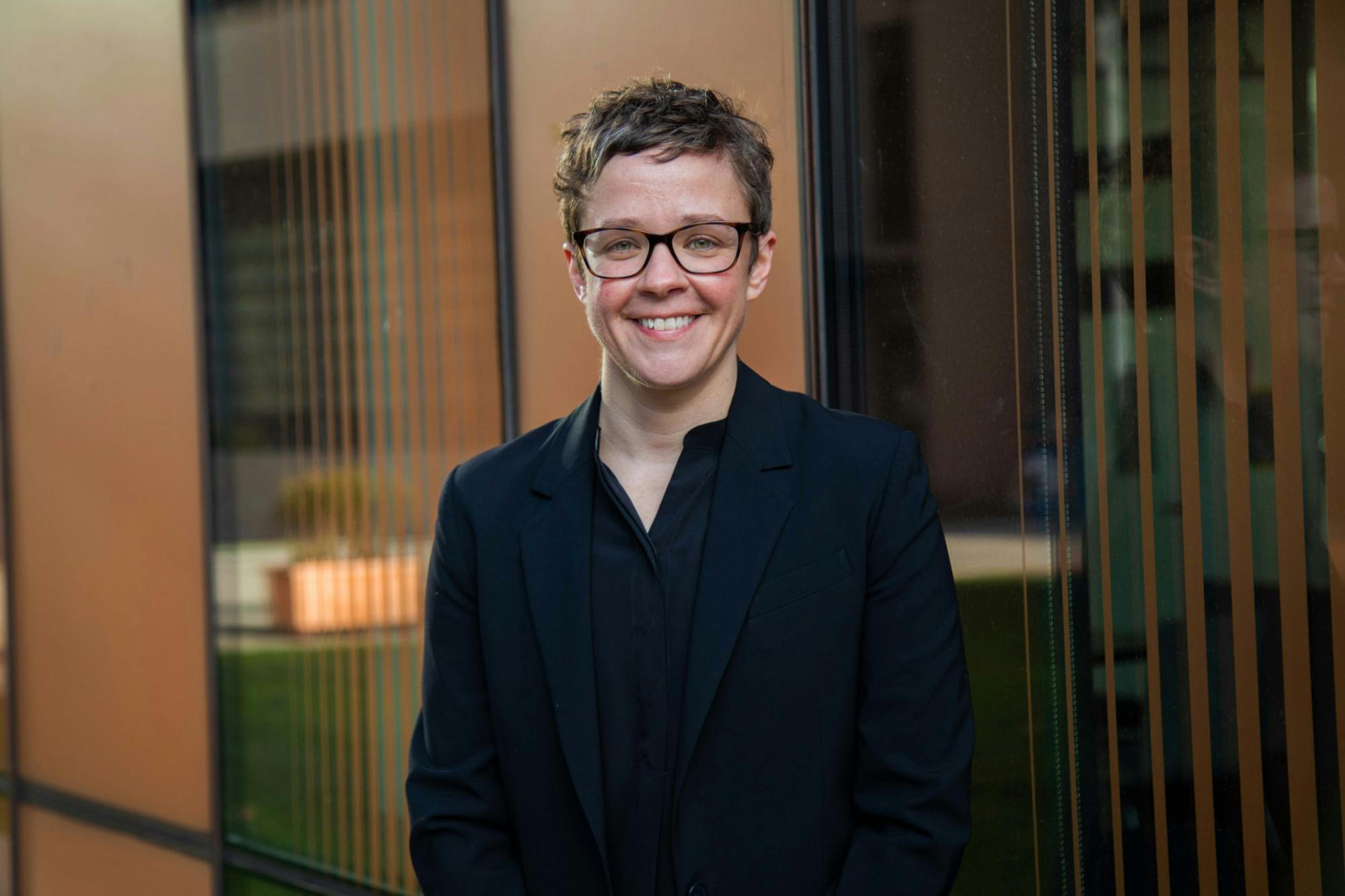This article is featured in the 2023 Freshman special issue.
On June 12, the College announced that Emma Wolfe will begin her role as the inaugural vice president for government and community relations. Previously, Wolfe worked as chief of staff under former New York City mayor Bill de Blasio, as well as senior advisor to the president for external relations and leadership development at Barnard College. In her role as a senior advisor at Barnard, Wolfe reported to former Barnard College President and current Dartmouth College President Sian Leah Beilock. The Dartmouth sat down with Wolfe to discuss what her role entails, her goals and forging her own path.
How are you adjusting to your recent move from New York City to Hanover?
EW: Hanover is an awesome place. My dog is still getting used to it, so he and I are in conversation about how he’s acclimating to less city noise! For me, it’s been so fun. On a given day, I can walk or bike to work, I can walk down the street and bump into colleagues and I can go on a hike. These are things that you don't naturally have in New York City. It’s a little bit quieter, and that’s the hard part for my puppy.
You served as deputy mayor and chief of staff to former New York City Mayor Bill de Blasio. How did that role inform your role at Barnard advising President Beilock on external relationships?
EW: I went from working in government to working for Barnard. I was interested in learning about new things and being a critical thinker; those are all incredibly important for most executives, leaders and their team members. I was fortunate to build a lot of relationships in my role in government, and prior to that, through politics and organizing. Those relationships were helpful, I hope, to Barnard. Then I got to the pleasure of building new ones at Barnard because every workplace and leader has its own ecosystem.
What are your short and long term goals for your new position?
EW: Well, I’m definitely figuring those out. Short term, I want to listen a lot and learn as much as humanly possible. I’m still trying to figure out how to inject more knowledge into my brain. Longer term, it’s quite clear that there should be a couple of priorities off the bat. I think we want to be more engaged, more present and a more active partner with Hanover and the Upper Valley. There are obviously issues that everyone in the area is facing, whether those are housing, childcare or workforce issues. I think Dartmouth leadership and President Beilock are really keen on us playing as active a role as possible to help be part of collective solutions. The other area that I think is a very rich area for us to explore is federal relations, and we have tremendous assets in our alums in Washington, D.C., who are committed and loyal to Dartmouth. We’re already starting with such a tremendous advantage in terms of the network and relationships that the institution has, but really being intentional about how we can build relations for faculty and for the administration there.
As the inaugural vice president for government and community, you are forging your own path. What are some of the challenges this entails?
EW: First of all, I do want to give credit to my colleague Heather Drinan, who is the director of government relations. She has done a tremendous amount. I think she and I are both very excited about the ability to drill down and focus more. One of the hardest things about a new office and a new role is deciding what you’re going to focus on — that means saying yes to some things, and it means saying no to other things. Right now, I’m in this exciting but also very impatient phase where I want to be able to learn, and there is a tremendous amount for someone who’s new to Dartmouth to learn. Dartmouth is an awesome place of traditions. I’m drinking from the fire hose, which is always hard and fun when you are new to a place. That’s an advantage when your work is government and community, you get to know not just the institution that you’re working for, but also the government and community.
All the fun aside, I do feel some sense of urgency. It is very clear that people want this kind of an office, and they want this kind of a team. They want us to grow our community and our government relations at every level: local, state, federal. So I want to get on with that mandate really, really quickly. I’m balancing learning and wanting to be very clear about our office’s strategic priorities. That’s always a hard thing when you’re new and when you have a new office.
You hold a Bachelor of Science in urban studies and affairs from Barnard College. How do you see that degree relating to your work here in Hanover?
EW: Urban studies was an interdisciplinary program at Barnard, and it was about learning about complex organizations. Urban areas and cities were really interesting to me because of their density and the quantity of people. But at the end of the day, what I was most excited about was working in communities. I think it’s applicable to getting to know any place that is layered, complex and has a tremendous history. I would say those skills are certainly transferable, or at least I hope they are.
Your role as vice president for government and community involves overseeing Dartmouth’s relationships with the local, state and federal government. How do you plan to balance cultivating these relationships at each level?
EW: I think at all levels we should play a larger role. Right off the bat, in Hanover and in the Upper Valley, we want to just be more present and engaged. Certainly that’s President Beilock’s vision and directive. I also think there are tremendous opportunities in Washington, D.C.
This interview has been edited and condensed for clarity and length.




